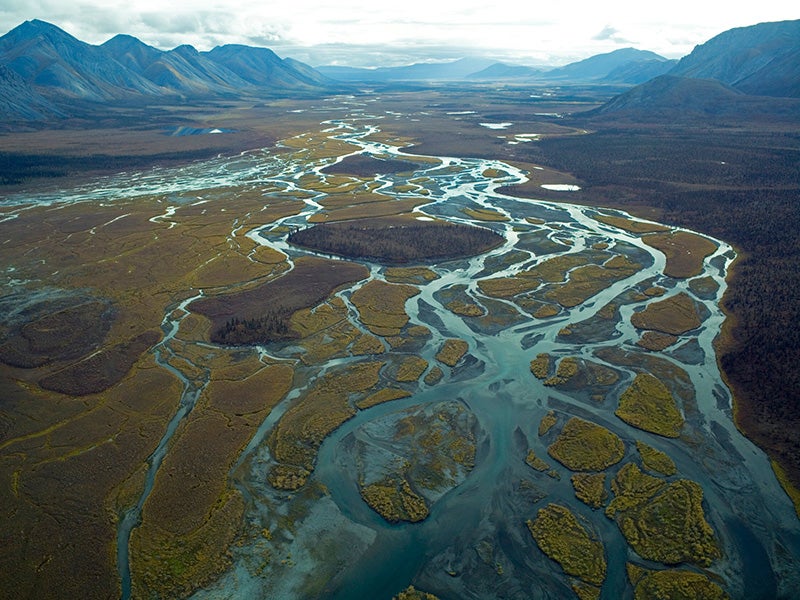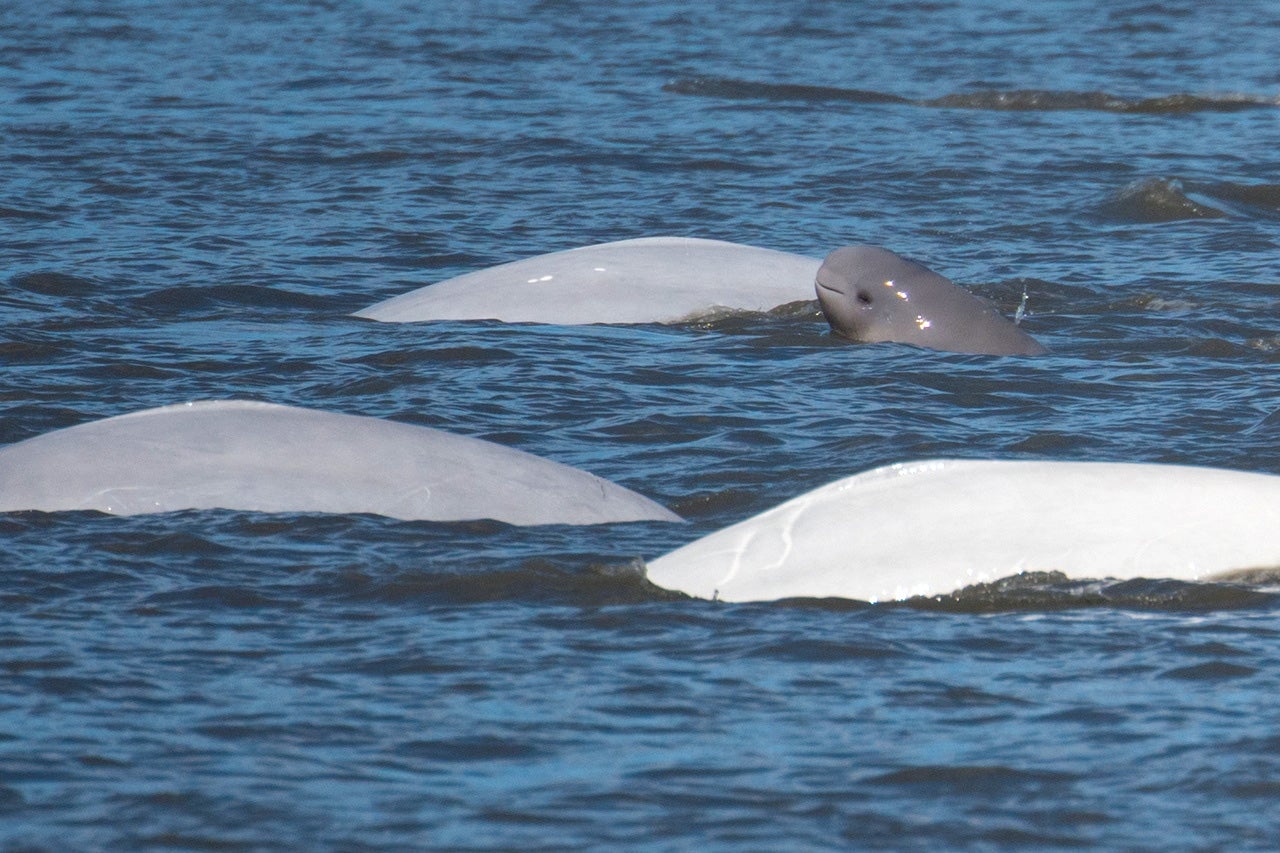What We Target
Earthjustice focuses on points in the fossil fuel life cycle where we can have the greatest impact.
Extraction
We defend lands and waters from leasing, drilling, and mining.
Transport
We challenge oil and gas pipelines and crude oil and LNG export terminals.
Processing
We fight petrochemical facilities that harm people already plagued by fossil fuel pollution.
New Paths to Profit
We combat industry’s attempts to carve new paths to profit, including fighting the carbon capture buildout.
Preserving a habitable planet is still possible — if we end our reliance on fossil fuels. Though we know burning fossil fuels is the largest driver of climate change, industry is expanding oil and gas development, facilities, and export projects.
To change course, Earthjustice and our partners are fighting to loosen the fossil fuel industry’s destructive grip on our world. We work to constrain new markets for the industry’s polluting products, reform permitting systems that allow massive fossil fuel and petrochemical buildouts, and challenge fossil fuel projects with enormous stakes for people and the planet. While we bring our legal, advocacy, and communications expertise, our clients and partners drive this work with their extensive knowledge and experience. Together, we are building a formidable force in this highest-of-stakes fight for the health of people and our planet. We can win — and it will take all of us.
Transportation Infrastructure
The U.S. is building massive fossil fuel transport infrastructure projects that threaten to lock in fossil fuel dependence for decades. To counter the boom, Earthjustice challenges projects and works to secure reforms for oil export terminals, liquefied natural gas (LNG) export terminals, and pipelines.
Oil Export Terminals. The U.S. is now the world’s fifth largest oil exporter and the world’s top oil producer. The oil industry wants to export more, faster, and it has identified the Gulf of Mexico as a place to do this by expanding existing export terminals and building new terminals capable of handling very large crude carriers (VLCCs), ships capable of loading 2 million barrels of oil per day.
To stop this buildout, Earthjustice leverages federal environmental laws that govern facility permitting, such as the National Environmental Policy Act (NEPA), the Deepwater Ports Act, and the Clean Air Act. We and our partners are challenging permits for all the industry’s proposed offshore VLCC terminals, as well as other onshore-related export infrastructure proposed in the Gulf.
We also focus on removing illegal barriers to public participation in air and water permitting that disproportionately harm environmental justice communities. On behalf of community members in Texas, we successfully challenged an air permit for Max Midstream’s Seahawk project, an expanded onshore oil export terminal that would have had the capacity to store over 200 million gallons of crude oil; the larger project also involves expanding and dredging the surrounding Matagorda Bay to get more oil shipped out. We argued that the Texas Commission on Environmental Quality (TCEQ) unlawfully denied a hearing to impacted community members who live, work, and fish in the area by following TCEQ’s arbitrary “one-mile rule.” Based on this unwritten practice, TCEQ has been denying hearings for those living farther than one mile from a proposed facility on the basis that they do not have “standing.” It did so even while its rule did not take into account the proposed facility’s size or the amount of pollution it would discharge. We’re defending this victory on appeal.
LNG Export Terminals. There is no more recognizable symbol of fossil fuel expansion than LNG. The fossil fuel industry builds massive, energy-intensive facilities to supercool methane gas into LNG to then be shipped in huge tanker ships to destinations around the world. The U.S. is the top global exporter of LNG today, and we are projected to double our capacity in less than six years.
Earthjustice confronts this threat by strategically challenging projects where we have deep, placebased partnerships and expertise, including in Alaska, Louisiana, Puerto Rico, and Washington state, among others. For instance, in Louisiana, we are challenging state coastal use permits for the proposed CP2 project. Projected to export more LNG than any other facility in the U.S. and produce 20 times the annual carbon emissions of the Willow drilling project in Alaska, CP2 has become the face of the fight against LNG expansion. And in Tacoma, Washington, our legal challenges pushed developers to abandon plans to expand a LNG terminal.
In addition to our site-by-site approach, we also pursue reforms of the broader federal regulatory structure governing the review of LNG exports and infrastructure. At the federal level, the Department of Energy (DOE) and the Federal Energy Regulatory Commission (FERC) have substantial authority over gas exports and infrastructure but have flawed regulatory structures for how they consider the environmental, community, economic, and energy security issues implicated by exporting massive volumes of LNG.
Earthjustice is part of a coalition effort to reform the DOE’s process for reviewing and weighing LNG export projects. We heralded a resulting Biden administration announcement pausing approvals for at least 14 pending LNG export projects while it studies the climate, environmental justice, and economic impacts of LNG exports to, hopefully, more seriously consider these harms in its public interest decisions going forward. We are working to ensure that DOE’s new and revised studies yield improved analyses that would help pave the way for DOE to reject increasing numbers of export applications. We are pressing FERC to revise its climate and environmental justice analyses in its NEPA review of LNG terminals. And we’re engaging in Pipeline and Hazardous Materials Safety Administration rulemaking for LNG safety regulations.
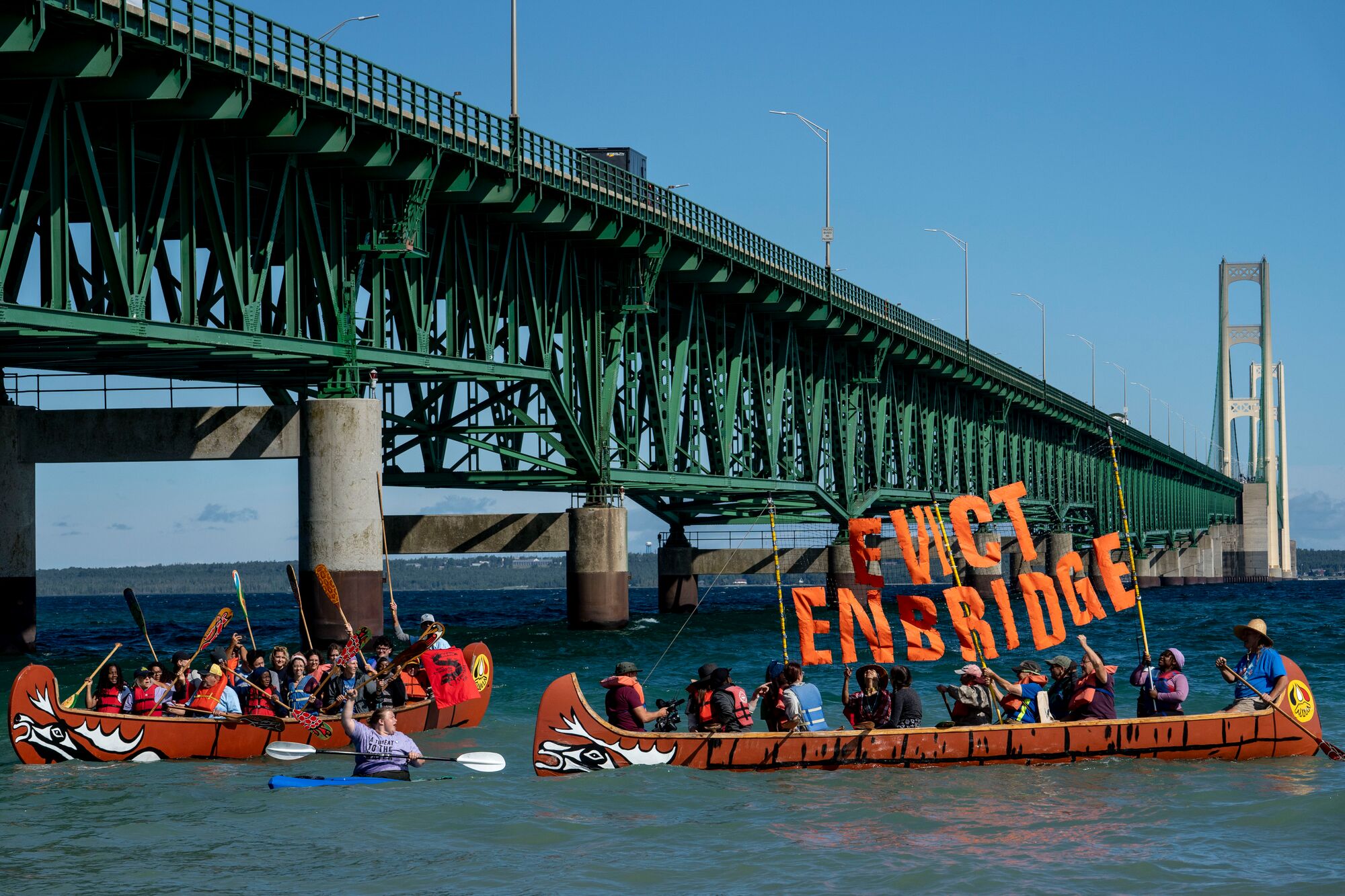
Pipelines. Traversing millions of acres of plains, desert, forests, and mountains, oil and gas pipelines endanger the communities and ecosystems in their paths. Earthjustice challenges these pipelines across the country with strategic communications, regulatory challenges, and litigation. Our work with the Standing Rock Sioux in their fight against the Dakota Access Pipeline catalyzed attention to Big Oil’s expansion plans, along with marquee fights such as Keystone XL, Bayou Bridge, and Mountain Valley.
A key example of this work is our challenge against Canadian oil giant Enbridge’s Line 5 pipeline in the upper Midwest. Since the 1950s, Enbridge has been using its Line 5 pipeline to shuttle toxic fossil fuels through the Great Lakes — the largest surface freshwater system in the world that supplies drinking water for up to 40 million people in the U.S. and Canada. To date, the pipeline has leaked over 1 million gallons of oil. Line 5 runs through the treaty-reserved territory of tribal nations, including the Bay Mills Indian Community in Michigan and the Bad River Band of Lake Superior Chippewa in Wisconsin.
Neither of the Tribes were consulted during Line 5’s construction, yet they have lived with its catastrophic risk for decades. We’re honored to represent Bay Mills in their fight to shut down the pipeline where it runs through their territory and the Bad River Band as they fight to have Line 5 removed from their homeland.
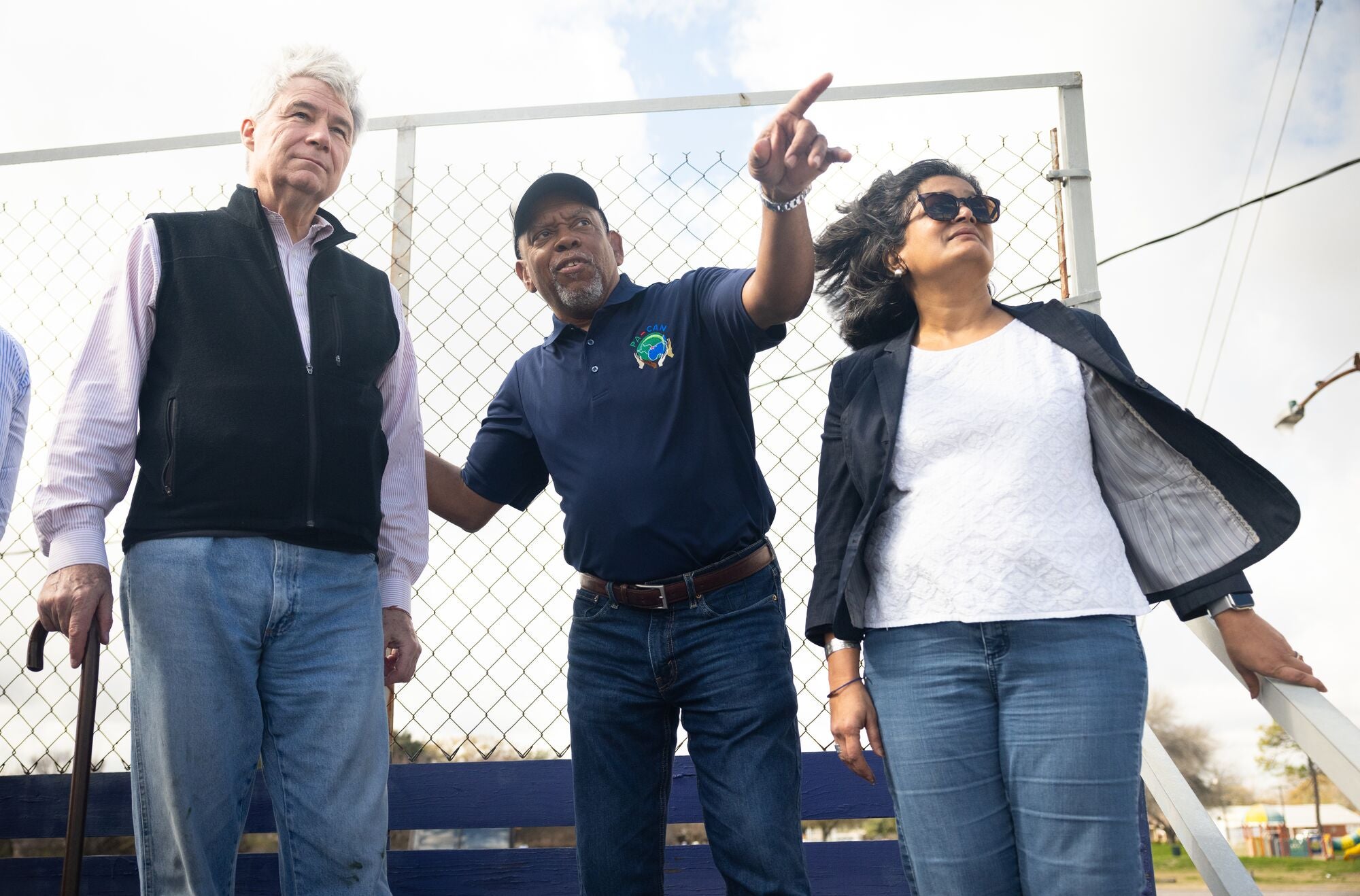
Petrochemicals
Petrochemicals — chemical products made by refining oil and gas — have been a component of our fossil fuel economy for decades and have long escaped environmental scrutiny. As we transition away from burning oil and gas for energy, the industry is working to replace that demand by dramatically expanding the market for petrochemicals, including plastics. A buildout at this scale would cause enormous environmental harm and injustice. It would worsen conditions in areas treated as sacrifice zones like Louisiana’s “Cancer Alley,” and it would generate huge quantities of greenhouse gases — one of the project proposals would be equivalent to multiple coalfired power plants or 3 million gas-burning cars.
The petrochemical industry’s expansion plans are opportunistic: they assume an ability to co-opt state governments and steamroll communities, exploit lax regulations and block new ones, and downplay the impacts of their products and operations. We support a growing movement, centered in the Gulf South and Ohio River Valley, that is challenging those assumptions.
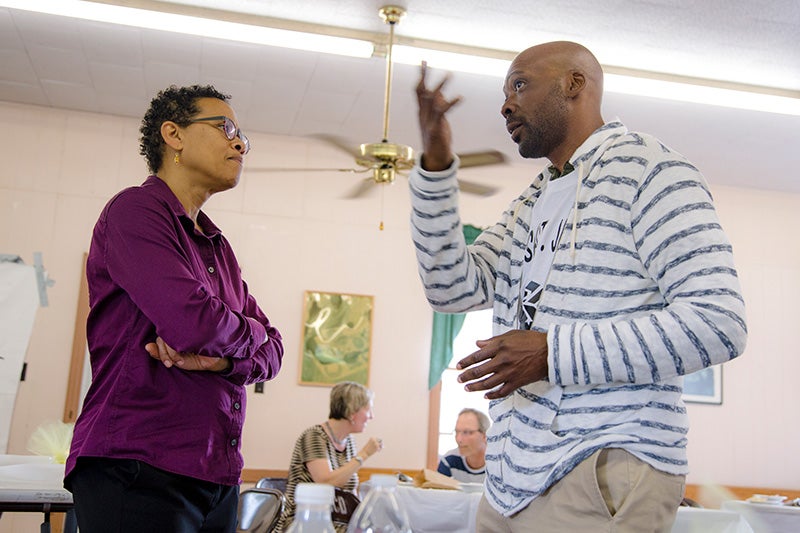
Facility Fights. Earthjustice has fought several of the worst petrochemical project proposals with the goal of forcing developers to abandon these projects. We have overwhelmingly succeeded in this work:
- We stopped South Louisiana Methanol’s plan to build what it described as the “largest methanol manufacturing facility in North America” within a historic Black community in Louisiana. After we submitted multiple rounds of comments on behalf of RISE St. James opposing air and wetland permits for the project, the company abandoned its plans — and when it sought a zoning change to allow other industrial development on its 1,400-acre site, we successfully challenged that too.
- We succeeded in getting construction air permits withdrawn for the Lake Charles Methanol facility in Louisiana, a dirty petcoke-to- methanol plant that would have emitted more than 6 million tons of greenhouse gas emissions per year to make plastics and other synthetic products.
- Our legal and grassroots campaign against the PTT Global Chemical ethylene cracker plant in the Ohio River Valley, which would have been one of the largest facilities of its kind in the U.S., halted progress to build the facility. Its permits have since expired.
- Our series of legal challenges has frozen development of the enabling Mountaineer NGL Storage facility in the Ohio River Valley. This facility would have stored ethane, butane, and propane derived from fracked gas.
- We prevailed in legal challenges to permits and environmental analyses for the proposed Kalama Methanol plant on the banks of the Columbia River in Washington, which would have consumed more gas than all the power plants in the state. The company withdrew its legal appeals, effectively conceding defeat.
Though we’ve gained traction on several fronts, our work is far from over. We continue to fight Formosa Plastics’ petrochemical complex planned for St. James, Louisiana. We are asking the state Supreme Court to uphold our win that canceled all of the complex’s air permits, while we also fight Formosa Plastics’ application to renew its air permits.
Stronger Regulations. In addition to targeting individual facilities, we also work to secure strong federal air standards and regulation for toxic pollution related to petrochemicals through litigation, advocacy, and communications. Key tools in this fight are the Clean Air Act and the Toxic Substances Control Act, the country’s primary chemical law that Earthjustice and our partners fought successfully to reform.
Rules we helped secure include the Hazardous Organic NESHAP rule and Polymers and Resins Rule, which regulate toxic emissions from synthetic organic chemical manufacturing plants including the notorious Denka neoprene facility in Louisiana; the Ethylene Oxide Commercial Sterilizers rule, which covers medical sterilization facilities that emit cancer-causing chloroprene; the Safer Communities by Chemical Accident Prevention rule; and the Chemical Sector and Petroleum Refineries rule. And in February 2024, we celebrated the EPA’s announcement of a strong final rule for PM 2.5 (soot) — an important step in reducing the disparities experienced by communities facing disproportionate pollution burdens.
Power in Partnership
Frontline communities, those being hit first and hardest by the fossil fuels buildout, are organizing to protect their health and develop a new economic vision for regions such as the Gulf Coast and the Ohio River Valley. These communities are mounting effective grassroots campaigns that are already blocking new and expanded facilities and holding existing facilities accountable for their pollution. Their campaigns help secure environmental justice and dispel the industry’s job-creation narrative. While slowing or blocking bottleneck infrastructure, these campaigns also expose the ways in which industry-captured state governments have tried to silence and disempower their own citizens.
Earthjustice is honored to support our clients in these efforts. Our Fossil Fuels program was designed to represent clients in strategic, placebased, and climate justice-focused fights to change the law, build community power, and undermine the social license of oil and gas. With each fight we are pushing to advance equity and justice, as a strong climate justice movement will turn the tide for us all.
Constraining New Paths to Profit
As clean energy gains traction, the fossil fuel industry is evolving and looking for new sources of revenue. Earthjustice counters aggressive expansion by these companies, which will never voluntarily abandon their profit model. The biggest threats we address are carbon capture and sequestration (CCS) and dirty hydrogen.
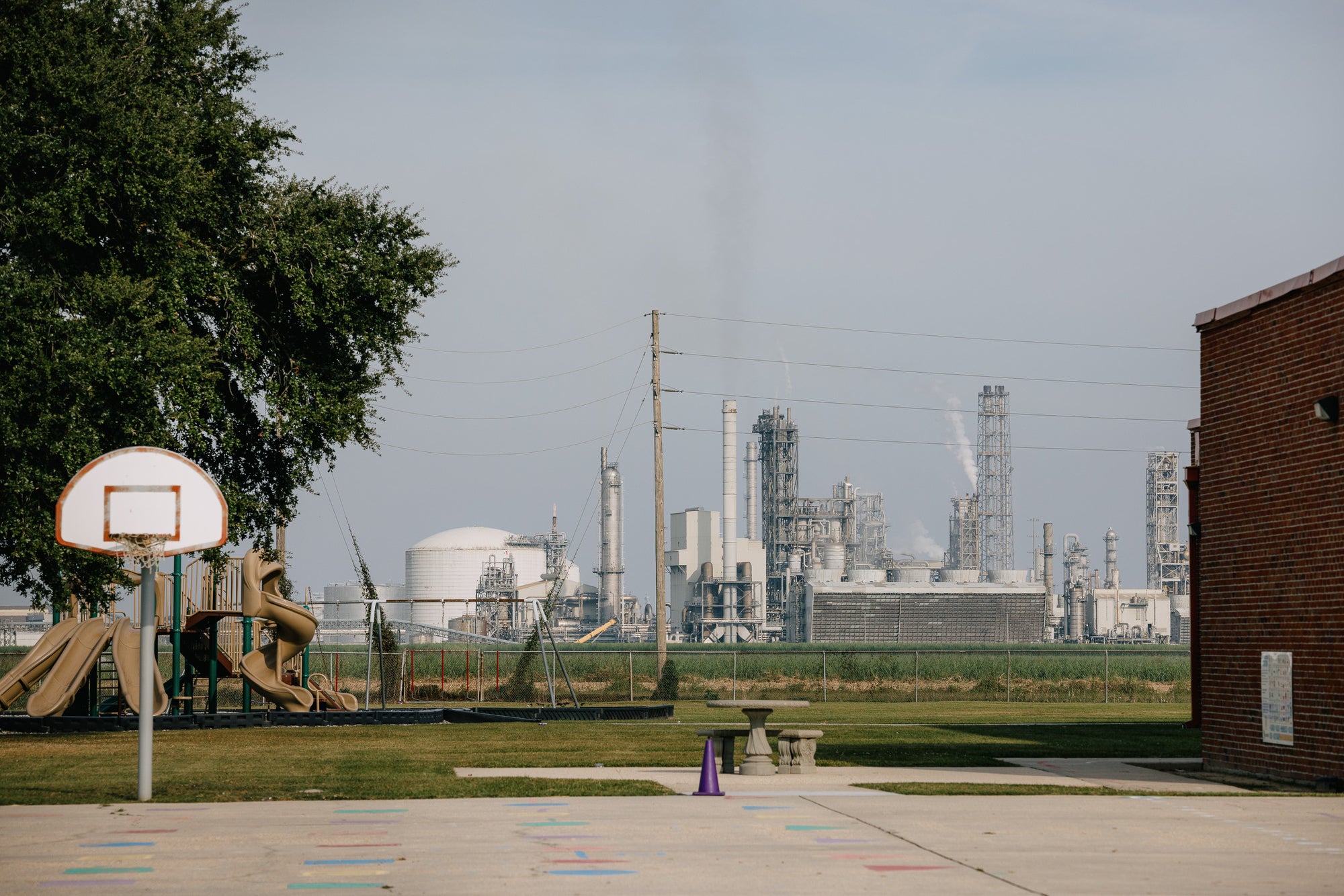
Carbon Capture. The federal government is investing heavily in carbon capture, technologies that capture carbon emissions at fossil-fueled power plants and industrial facilities to be sequestered underground or used for other purposes. The oil and gas industry is using this moment to accelerate the buildout of new fossil fuel projects. From tax credits to grants, numerous CCS projects are in the works or planned across the country. But CCS threatens our climate and our health. These projects are energy-intensive and powered by dirty energy, adding to the source’s overall carbon footprint. Our efforts to challenge this buildout are quickly growing.
After successfully getting construction air permits rescinded for the Lake Charles Methanol facility in Louisiana, we are now fighting proposed permits for a reconstituted Lake Charles Methanol II with an associated carbon dioxide pipeline. We are challenging Air Products, a blue hydrogen-to-ammonia facility planned for construction on a former sugar plantation in Louisiana. The facility would rely on fracked methane gas, increase air pollution to already inundated frontline communities in “Cancer Alley,” and require a pipeline through a treasured cypress forest and watershed. We are opposing the first major CCS project in California, known as Carbon TerraVault I in the Elk Hills oil field, because it would exacerbate fossil fuel pollution. And we are challenging the EPA’s decision to grant Louisiana authority over carbon storage wells (Class VI wells) under the Safe Drinking Water Act.
Dirty Hydrogen. Whether hydrogen is part of our climate solutions or part of the problem depends on how it’s produced and how it’s used. Oil and gas companies would like us to believe that hydrogen fuel is an up-and-coming clean energy savior. But more than 95% of hydrogen produced in the U.S. today comes from fossil fuels. Much of it is used in turn to make ammonia and methanol for petrochemicals and other uses. While hydrogen burns without emitting carbon dioxide, hydrogen production from fossil fuels is energyintensive and produces significant greenhouse gas emissions. Additionally, the hydrogen combustion emits significant amounts of nitrous oxide (NOx) and other pollutants. Hydrogen’s climate toll is so huge that global hydrogen production today is responsible for more climate pollution than the country of Germany. Less than 1% of hydrogen produced today is clean or “green” hydrogen, produced through 100% renewable energy.
Our work on fossil hydrogen is also growing quickly. We’re advancing policies that close regulatory gaps, account for the full impacts of hydrogen production and use, and direct public dollars to projects that can help us fully decarbonize.
Blocking Oil and Gas Extraction
Earthjustice’s work to end oil and gas extraction on federal lands and waters includes:
Defending the Western Arctic
We spurred cancellation of all oil and gas leases issued in the Arctic National Wildlife Refuge during the Trump administration; halted 88 Energy’s Peregrine project; and secured regulations to protect ecologically and culturally important areas in the Western Arctic.
Permanently Protecting the Badger-Two Medicine
We settled a lawsuit to cancel the last oil and gas lease in the Badger-Two Medicine region in Montana, marking the culmination
of a 40-year fight by Blackfeet Tribal leaders, conservationists, and others.
Safeguarding Oceans
We forced the government to reconsider a lease sale that threatened beluga whales in Alaska’s Cook Inlet; restored protections in areas of the Arctic and Atlantic oceans; are working to end new offshore drilling projects, including supporting NGO efforts in South Africa; are challenging lease sales in the Gulf of Mexico; and are opposing further Gulf leasing in the U.S. fiveyear oil and gas leasing plan.
Thank You
The fossil fuel industry would have us believe that its presence in our lives is inevitable. But we’re proving another world is possible when we reform lax regulations, keep oil in the ground, halt a facility or pipeline, and center genuine climate solutions. Thank you for fighting alongside us.
Written by Monica Lauw, a senior writer at Earthjustice
Justice Partners are passionate and engaged supporters of Earthjustice who are serious about making the world a better place. Learn more.
Earthjustice’s Fossil Fuels Program is taking on the fossil fuel industry’s efforts to pursue new paths to profit that not only accelerate the climate crisis, but also continue to cause harm to marginalized communities.
